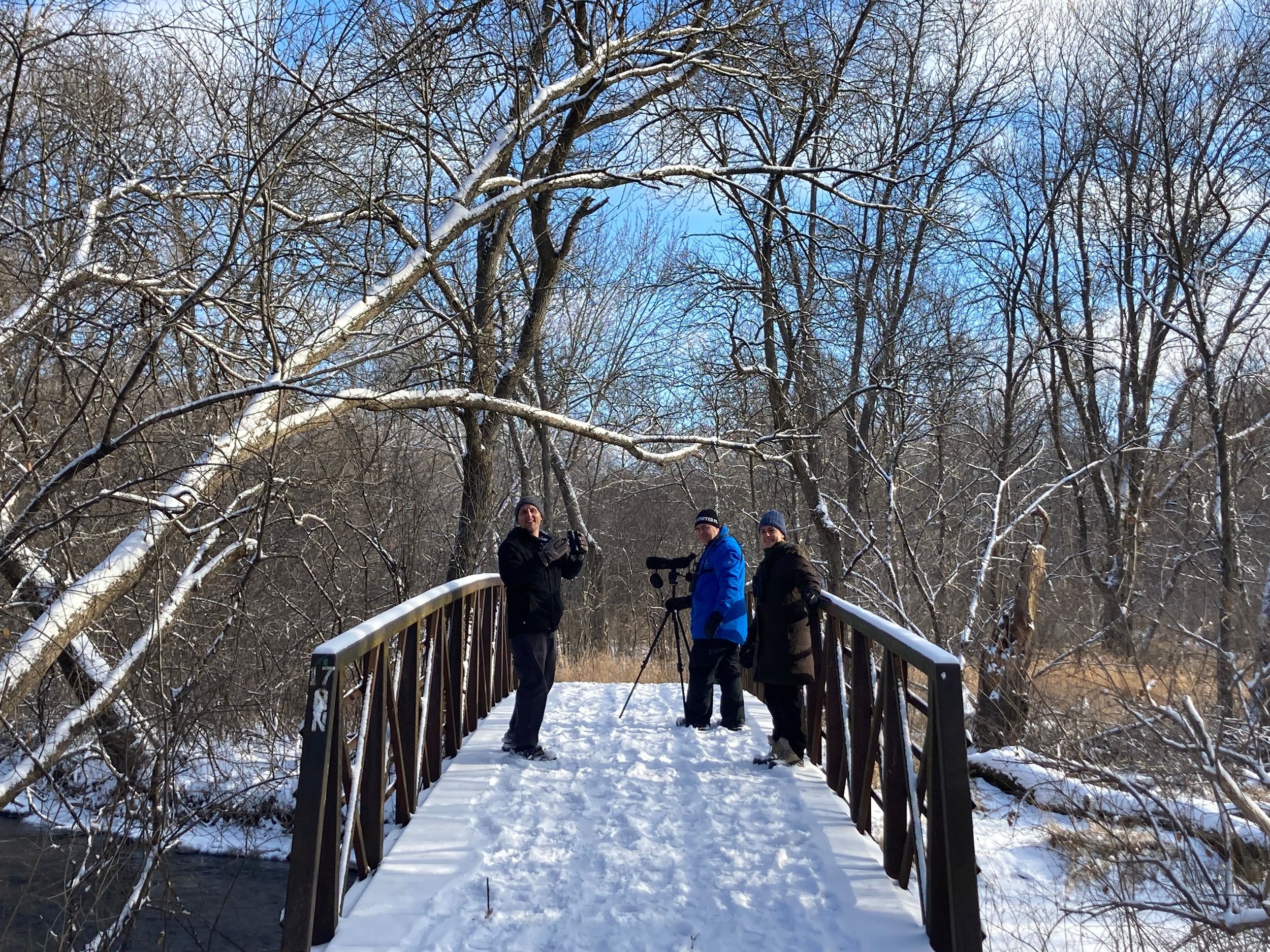
Participatory science
winter bird count
The Christmas Bird Count is a Nerdy, Birdy Holiday Tradition
ACM was proud to cosponsor the 2023 Minneapolis West Winter Bird Count circle with Urban Bird Collective. The Winter Bird Count is typically held on the third weekend of December. If you are interested in volunteering for this year’s count, please contact contact@llbirdalliance.org for more information or to sign up. Be sure to include the number of people in your party. People of all levels of experience are welcome.
The WBC is a wonderful way to connect with other birders, gain confidence with your bird ID skills, enjoy the beauty of winter, and contribute to bird conservation research. All are welcome!
Collision COrPS MONITORING PROJECTS
SKYWAY STUDY
In 2016, the city of Minneapolis enacted an ordinance requiring newly built skyways to employ bird safe glass. LLBA is conducting a study to evaluate whether five new skyways built with bird safe glass have reduced bird collisions. We have designated two routes for data collection on the skyways. The Star Tribune highlighted these efforts in this article.
MISSISSIPPI CRITICAL CORRIDOR
In 2020, the city of Minneapolis adopted important regulations for land development along the Mississippi. Unfortunately, the city declined to include regulations requiring bird safe glass. LLBA plans to add a monitoring route along the river to demonstrate the need for adoption of bird safe glass requirements. Read more about the Mississippi Critical Corridor here.
HIGH-RISK BUILDING MONITORING
Some buildings are known to pose a significant threat. LLBA continually monitors these high-risk buildings.
GET INVOLVED
Volunteer with LLBA Collision Corps from September 23-29, 2024. If you are interested in learning more about how to participate, please contact contact@llbirdalliance.org


